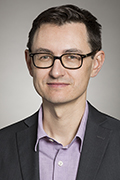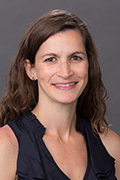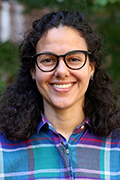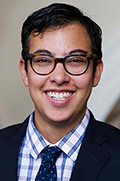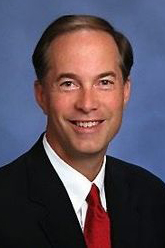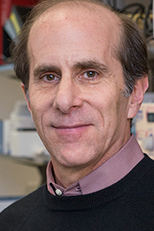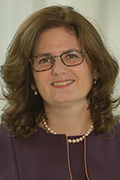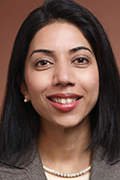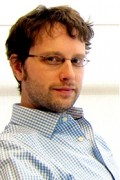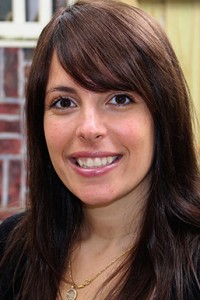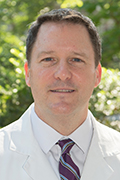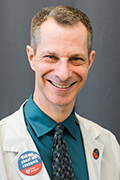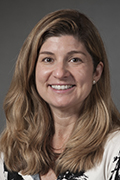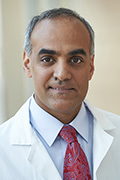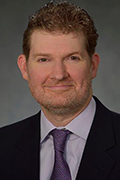Penn Engineering to Develop Intelligent, Adaptive and Resilient Robot Teams with $27 Million Army Research Lab Grant
The United States Army Research Laboratory (ARL) has awarded the University of Pennsylvania’s School of Engineering and Applied Science a five-year, $27 million grant to develop new methods of creating autonomous, intelligent and resilient teams of robots.
These teams, consisting of multiple different types of robots and sensors with varying abilities, are designed to assist humans in a wide range of missions in dynamically changing, harsh and contested environments. These include search and rescue of hostages, information gathering after terrorist attacks or natural disasters, and humanitarian missions.
The award is part of ARL’s Distributed and Collaborative Intelligent Systems and Technology (DCIST) Collaborative Research Alliance. Penn Engineering will lead this alliance in collaboration with the Army Research Laboratory, Massachusetts Institute of Technology’s department of aeronautics and astronautics (AeroAstro) and Georgia Institute of Technology. The consortium also includes faculty from University of California San Diego, University of California Berkeley and University of Southern California.
DCIST involves imbuing teams of heterogeneous robots and sensors with the intelligence to learn and adapt to different settings and perform new tasks along with humans. Key to this vision is building resilience to disruption.
Teams of robots and human first responders might eventually be used to survey a disaster site for victims, but unpredictable environments and ongoing hazards could damage or destroy some of the robots, or disrupt communications between them. If each robot were just preprogrammed and given specific instructions, that could lead to gaps in their search. But if the team was able to reconfigure itself in response to damage, the remaining robots could collaboratively decide how to reorganize and work with human partners to complete the mission.
“We want to have teams of robots that know how to work together, but can figure out how to keep working even if some of their teammates crash or fail, if GPS signal is unavailable, or if cloud services are disrupted,” said Vijay Kumar, Engineering’s Nemirovsky Family Dean and director of the DCIST program. “This means designing networks with loose, flexible connections that can change on the fly. That way, a single event can’t bring down the entire network. More importantly, we want them to learn to perform tasks they may have never performed and work alongside humans that they may never have worked with.”
The three important research focus areas are distributed intelligence and learning; creating a cohesive team of autonomous robots, sensors, computational resources and human experts; and building resiliency in group behaviors.
With multiple types of assets collectively assessing a complex, continuously changing scenario and determining how best to assign their individual skills to a broadly defined problem, such human-robot teams of the future would be ideal first-responders to dangerous situations.
“The technology we’re working will better allow humans to respond by projecting their intelligence without directly coming in harm’s way,” Dr. Kumar said.
Other Penn faculty and staff involved in the research include Alejandro Ribeiro, associate professor in the department of electrical and systems engineering; Ani Hsieh, research associate professor in the department of mechanical engineering and applied mechanics; George Pappas, Joseph Moore Professor in the departments of electrical and systems engineering, computer & information science, and mechanical engineering and applied mechanics; Kostas Daniilidis, Ruth Yalom Stone Professor in the department of computer and information science; Camillo Taylor, professor in the department of computer and information science; and Giuseppe Loianno, a research scientist in the GRASP Laboratory.
Penn Engineering: Launching the A. James Clark Scholars Program with $15 Million Gift from the A. James & Alice B. Clark Foundation
The A. James Clark Scholars Program has been established in the School of Engineering and Applied Science at the University of Pennsylvania with a $15 million gift from the A. James & Alice B. Clark Foundation. It is the largest one-time gift to undergraduate support in the University’s history. The Clark Scholars Program will provide financial aid and create a new academic program for undergraduate engineering students.
The gift honors the late A. James Clark, former CEO of Clark Enterprises and Clark Construction Group LLC, one of the country’s largest privately-held general building contractors. It is designed to prepare future engineering and business leaders, with an emphasis on low income families and first-generation college students. Mr. Clark never forgot that his business successes began with an engineering scholarship. This has guided the Clark family’s longstanding investments in engineering education and reflects their commitment to ensure college remains accessible and affordable to high-potential students with financial need.
“This spectacular gift partners the Clark Foundation with Penn Engineering around the shared goal of providing access to a stellar education in engineering to create the next generation of leaders,” said Penn President Amy Gutmann. “Each component of the program reflects our University’s commitment to inclusion, innovation and impact. Clark Scholars will benefit from a network of faculty, administrators, notable guests and fellow students to learn, experience and apply knowledge to benefit society throughout their professional and personal lives.”
The program will enroll ten students per incoming class, with recruitment underway for the first cohort beginning in the fall of 2018. Clark Scholars pursue rigorous engineering coursework, take at least two business classes, volunteer in community service activities and participate in enrichment seminars and events with leaders in the field. Scholars will also engage in personalized mentoring, research projects and innovation training. From their arrival on campus through their senior year, students will participate in a comprehensive, multi-faceted educational experience that includes programming targeted at each specific stage of their academic and professional journeys.
“In addition to educating engineers who will invent and innovate, every Clark Scholar will have opportunities to gain research experience and enroll in service-learning courses. We will also provide them with the critical thinking and analytical skills required for entrepreneurship,” said Vijay Kumar, Nemirovsky Family Dean of Penn Engineering. “We look forward to welcoming our first cohort of Clark Scholars to campus, and will support and guide them through this critical period of learning as they grow into leaders.”
As part of the academic program, Penn Clark Scholars will participate in a first-year service learning course titled “Computer-Controlled Indoor Plant Growing Environment,” which integrates engineering, agronomy and biology. Enrolled students will apply technology to hands-on work in urban gardens at local Philadelphia schools.
“Mr. Clark believed in eliminating financial barriers so that promising students could achieve their full potential,” said Joe Del Guercio, president and CEO of the A. James and Alice B. Clark Foundation. “The program intentionally nurtures original thinking, cultivates broad perspectives, encourages the development of practical applications of new technologies and requires meaningful public service—all geared toward developing the leadership skills that the future will require.”
In addition to Penn, the Clark Foundation has made engineering investments at The Johns Hopkins University, The George Washington University, University of Virginia, Virginia Tech and Vanderbilt University, with additional programs set to launch next fall
Etienne Benson and Dawn Teele: Janice and Julian Bers Assistant Professors in the Social Sciences
Etienne Benson, assistant professor of history and sociology of science, and Dawn Teele, assistant professor of political science, have been named Janice and Julian Bers Assistant Professors in the Social Sciences.
Dr. Benson is an accomplished scholar of the history of technology and the environment whose research explores the history of relationships between humans and animals and the history of environmentalism and the environmental sciences. His book, Wired Wilderness: Technologies of Tracking and the Making of Modern Wildlife, focuses on the development and use of surveillance technologies to track and understand wildlife.
Dr. Benson is currently serving as director of the undergraduate Science, Technology and Society program, and has served as a member of the Fellowships and Awards Selection Committee of the Penn Humanities Forum and as co-convener of the Environmental Humanities Faculty Working Group. Before joining Penn in 2013, he was a Ziff Environmental Fellow at the Harvard University Center for the Environment and a research scholar at the Max Planck Institute for the History of Science in Berlin.
Dr. Teele’s research, which examines the causes and consequences of voting rights reform, forms of bias in politics, and social science methodology, has won several prizes and awards, including the Women and Politics Research Section’s award for the best paper presented at the American Political Science Association (APSA) Conference in 2016, and the Gabriel Almond Award for Best Dissertation in Comparative Politics from the APSA. Dr. Teele has published in a variety of academic journals, is the editor of a volume on field experiments and is finishing a book about the practical politics of women’s suffrage.
Since joining Penn in 2015, Dr. Teele has served as a faculty advisor for University Research Scholars and as a member of the Fulbright Committee. She holds a BA in economics from Reed College and a PhD in political science from Yale University.
Janice and Julian Bers established these chairs in 1972 to recognize assistant professors who demonstrate outstanding promise as teachers and scholars in the social sciences. The late Janice Bers graduated from Penn with an education degree in 1939. Her husband, the late Julian Bers, graduated from Wharton in 1931. He received Penn’s Alumni Award of Merit in 1968, and served as a trustee of the University, while Janice Bers served as president of her class and on the 50th reunion gift committee.
From the President, Provost and EVP: Regarding Recent Tragedies, and the Help and Support Available to You
To the Penn Community:
This has been a challenging year for everyone in the Penn community. Students, faculty and staff have been personally impacted by devastating natural disasters and the horrific mass murder in Las Vegas; political uncertainty affecting DACA students and those who travelled to Penn from around the world; and the tragic deaths of four Penn students since the start of the semester: undergraduates Nicholas Moya and Henry Rogers, Penn Vet student Brett Cooper, and Penn Law student Justin Hamano. Our sense of loss is enormous and the sadness felt by the family and friends of these four promising young people is heartbreaking.
As a community, we are grieving and coping in many different ways. Penn’s exceptional staff and faculty have been working diligently to be as supportive as possible. They have been reaching out to friends and classmates who have been most deeply impacted and they have been meeting with all who seek help.
Campus Conversation: October 30
To strengthen and support our campus community, and as part of our ongoing Campaign for Community, we hope you will join us for a Campus Conversation on Monday, October 30, from 5-7 p.m. at the Zellerbach Theater in the Annenberg Center for the Performing Arts. We will be joined in discussion by members of our community from across campus to discuss what we can do, individually and collectively, to take care of ourselves and others and to foster individual and community resilience. A community that values wellness, community support and resilience is best poised to find creative and constructive solutions to our challenges.
The Campus Conversation will be one part of our ongoing effort to support and care for one another. We intend to have follow-up conversations through College Houses and Academic Services and elsewhere around campus in coming weeks. Through these follow-up conversations, we hope to gather and refine additional ideas to support our community. We welcome your input.
It is in challenging times such as these that we are blessed to be members of the Penn community. Everyone needs to know that we are here for each other. If you are in distress, please reach out to friends, colleagues or the professional staff at Penn. If you know of a friend, colleague or student in distress, please reach out as well. And please consider attending our Campus Conversation.
As additional details of the meeting are developed, information will be posted on the Campaign for Community website.
Below are resources that are always available to those in need of support or who are supporting others:
- Counseling and Psychological Services (CAPS): (215) 898-7021 (24/7 access to clinicians.)
- Student Health Service: (215) 746-3535
- Student Intervention Services: (215) 898-6081
- University Chaplain’s Office: (215 (898-8456
- Employee Assistance Program: 1-888-321-4433
The University’s HELP Line (215) 898-HELP or (215) 898-4357 is available 24/7 to respond and direct members of our community to the appropriate resources.
—Amy Gutmann, President
—Wendell Pritchett, Provost
—Craig Carnaroli, Executive Vice President
—Larry Jameson, EVP for the Health System and Dean of the Perelman School of Medicine
Ileana Pérez-Rodríguez: Elliman Faculty Fellow
Steven J. Fluharty, dean of Penn Arts and Sciences, is pleased to announce that Ileana Pérez-Rodríguez has joined Penn as assistant professor of earth and environmental science and Elliman Faculty Fellow as of July. A microbial ecologist who investigates the transfer of energy and matter between hydrothermal environments and microorganisms, Dr. Pérez-Rodríguez conducts experiments under different temperature and pressure conditions to evaluate the principles of microbial growth relevant to chemosynthetic metabolisms.
After completing her PhD dissertation defense at Rutgers University in September 2011, Dr. Pérez-Rodríguez was the Barbara McClintock Postdoctoral Fellow and the Center for Dark Energy Biosphere Investigations (C-DEBI) Postdoctoral Fellow at the Carnegie Institution of Washington, and then was C-DEBI Postdoctoral Scholar-Research Associate at the University of Southern California.
The Elliman Faculty Fellows are being funded by a generous gift from former Penn Arts and Sciences Overseer David D. Elliman, C’73, WG’77, and his wife, Dr. Andrea Branch, through the Bawd Foundation. Mr. Elliman, who has been an advisor to many of the School’s other innovative science initiatives, including the Vagelos Program in Life Sciences and Management, is greatly interested in energy and other areas of scientific research. A former biology major, he is the founding principal of the Elmrock Group of investment companies and is a board member of the Jackson Laboratory and Urban Electric Power, an early-stage energy storage company.

